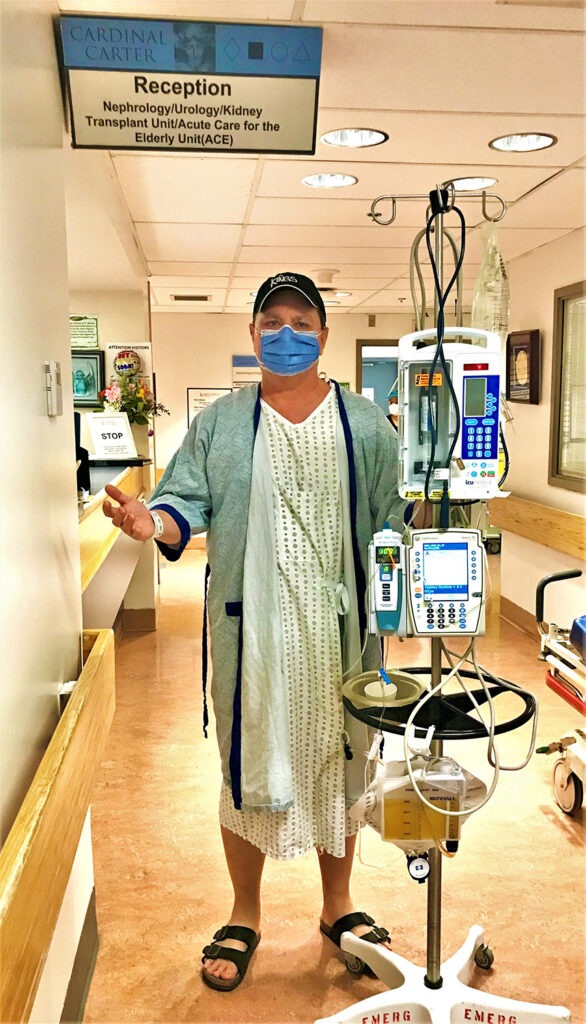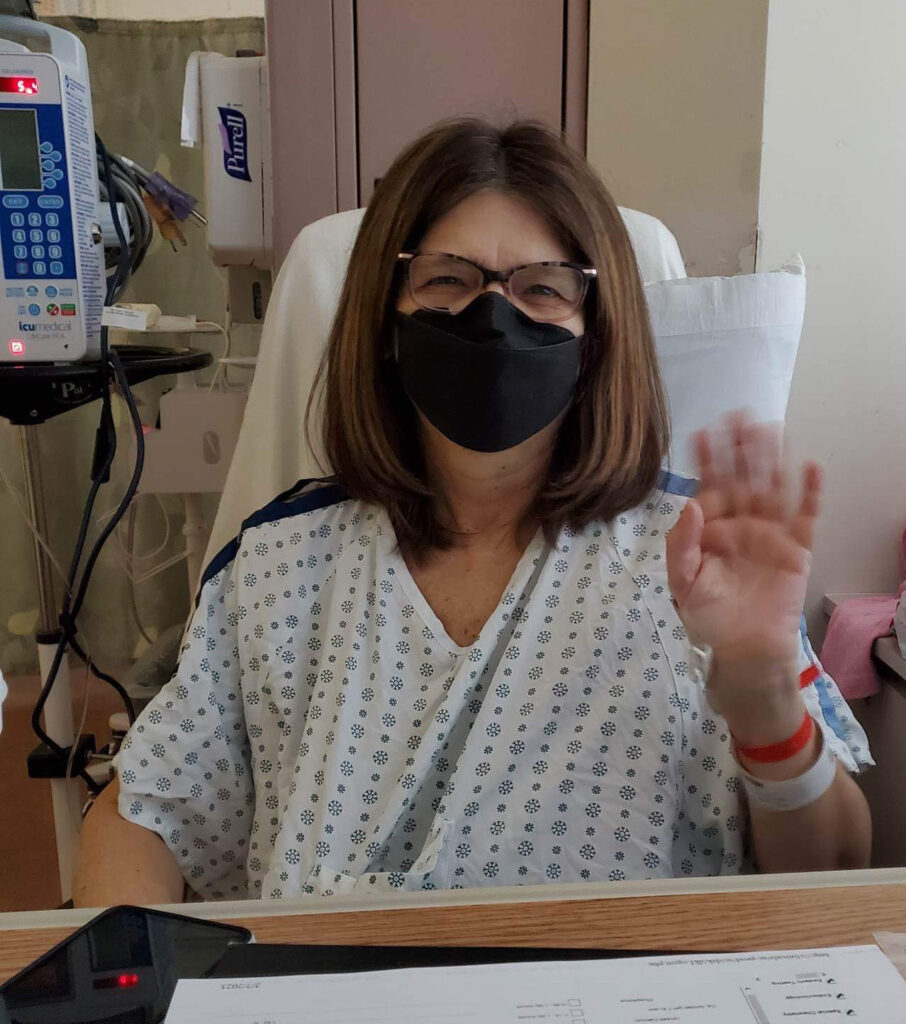‘A no-brainer’: Why this St. Michael’s patient donated his kidney to his sister in-law
St. Michael’s Hospital has one of the largest adult kidney transplant programs in the country
Forty years ago, when Laura Reid met her future brother in-law, she saw a gregarious teenager with a quick sense of humour and a talented musician, not someone who could save her life. That would come later.
After marrying Chris Reid in 1984, she had two daughters, travelled, and dedicated herself to a career in special education before pursuing an early retirement accelerated by the risks of the pandemic. All the while, Laura was managing the effects of declining kidney function, including nausea, swelling, extreme fatigue and constant chills.
Then, in 2021, she was left with two difficult options: dialysis or transplant.
‘A perfect match’
With her kidney function at just seven per cent, there was a sense of urgency among Laura’s loved ones to test their compatibility to be a living donor. A living donor transplant occurs when a patient receives an organ, such as a kidney, from a person who is healthy and still alive. Living donors can survive with just one healthy kidney.
Laura’s son-in-law, Dean, was tested. Though he wasn’t a match, he was encouraged by Laura’s care team to consider a paired exchange, where willing donors are matched with another respective recipient so that each recipient can receive a kidney with a compatible blood type. But when Laura’s daughter became pregnant, Laura refused Dean’s help – she didn’t want her son-in-law to miss that special time.

Laura’s brother-in-law, Bob Reid, felt like he was shoo-in. He reached out to the transplant coordinator to understand next steps and begin the necessary testing.
“I don’t know how I knew, but I just knew I would be a match,” he said, noting how reassured he was by the thorough screening process to ensure he was healthy enough to be a donor.
“I have more personal health information about all of my major organs, my overall health, everything, than most people get in a lifetime. There’s tremendous value and benefit in that – it’s a little side reward for being a donor.”
Laura was shocked that Bob’s intuition was right – he was a match. “In fact, I think we were told he was a ‘perfect match’,” she said. “I was thrilled.”
After careful thought, discussion with his wife, and conversations with other live donors to learn about their experience, Bob agreed to the transplant.
“We have a family member in need, someone who we care about tremendously, and if it turned out that I can really make a massive change in her life and give her her life back the way it used to be before she really got sick, and all it means for me is a month or two of inconvenience… It’s such a no-brainer and a small price to pay for the benefit,” he said.
The transplant
On Feb. 6, Bob donated one of his kidneys to Laura at St. Michael’s Hospital, a site of Unity Health Toronto. Bob’s procedure was conducted laparoscopically, a minimally invasive technique that allows the surgeon to access the abdomen without having to make large incisions.
A creatinine test measures how well the kidneys are performing their job of filtering waste from blood. Laura went into the procedure with a creatinine of 529 – which is quite high. She left the surgery with 101 per cent kidney function and currently has a creatinine of 51 micromol/litre.
“I didn’t realize how sick I had been because I had lived with kidney disease for so long,” said Laura. “After the surgery, I could smell the toxins coming through my skin for five days.”
Both Bob and Laura credit the care team for the success of the transplant, including Dr. Ramesh Prasad, Medical Director of the Kidney Transplant Program, surgeon Dr. Monica Farcas, the nurses and the transplant coordinator team.

“I was never afraid or nervous, and a huge part of that is the professionalism and confidence that we got from everybody we interacted with through the whole process,” said Bob. “We were aware of St. Mike’s world-leading track record when it comes to the numbers of procedures, successful outcomes, and caliber of transplant teams, so I had so much confidence.”
The Kidney Transplant Program at St. Michael’s began in 1969 and transplants anywhere between 120 to 140 kidneys per year. As one of the largest adult kidney transplant programs in the country, the program takes care of around 1,700 kidney transplant recipients, with some patients having had their transplant close to 45 years ago.
“Kidney transplantation really is the best option for someone with end-stage kidney disease,” said Dr. Prasad. “A living donor kidney transplant replaces more than twice the kidney function that dialysis ever can for the recipient, and that greater function in turn translates into all the symptoms of kidney failure resolving, patients being able to travel once again, eat some foods they were not allowed to before, and even live longer. Kidney donors correspondingly are able to live full and normal lives, and even live longer than the average person in the general population.”
A sense of purpose
Laura’s health has drastically improved since the transplant. She looks forward to her visits to the clinic and seeing how impressed the care team is by her latest numbers. Though she worries about rejection, a rare but possible reaction to transplantation, she is on anti-rejection medications, is taking her recovery slowly and looks forward to resuming travelling after a year-long lapse since the procedure. It’s the little things, like showering independently, that mark her improving strength.
For Bob, recovery has been surprisingly quick. He was released from hospital after three days, and is reassured that the kidney donation won’t have a lasting impact on his life, lifestyle, habits or hobbies. He considers the entire experience a blessing.
“The spiritual benefit that brings to me – it’s off the charts. I have such a sense of purpose of being able to do some good in this world. I was able to help somebody, two people, four people if you count their adult children – they got their mom back.”
April is Be A Donor Month. Register to be an organ donor or check your status.
By: Jennifer Stranges
